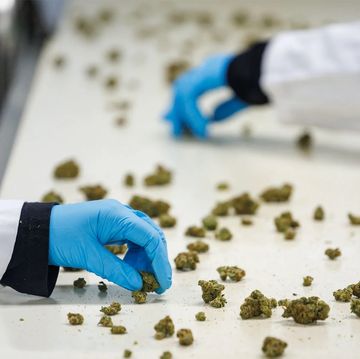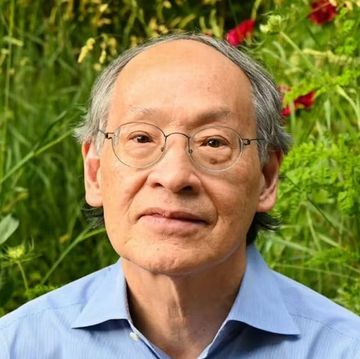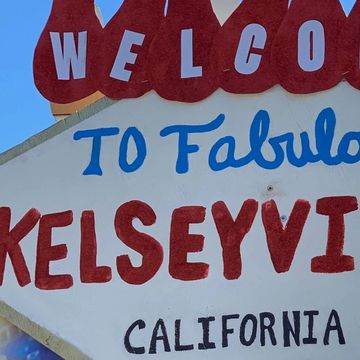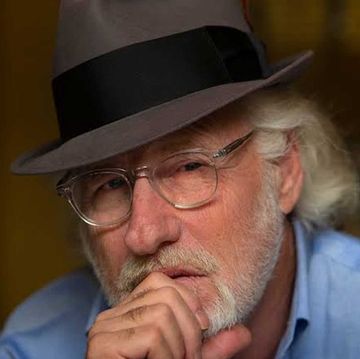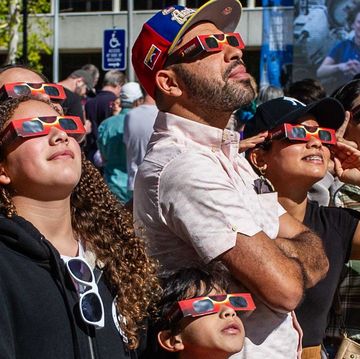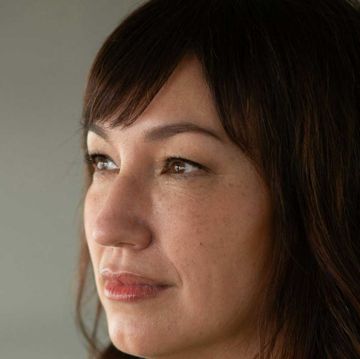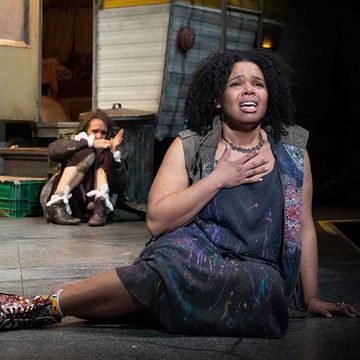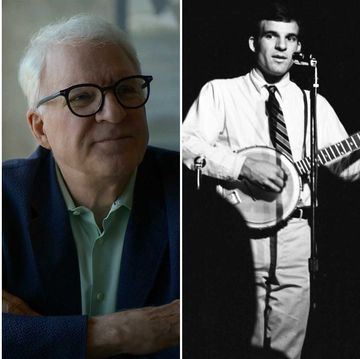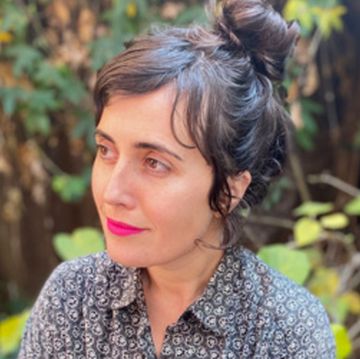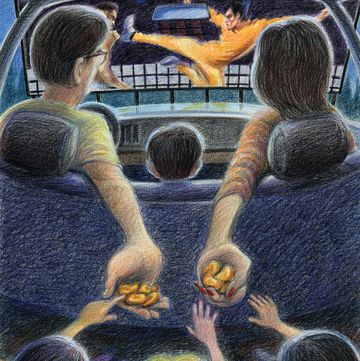Middle age is as sneaky as carbon monoxide. It doesn’t bang on the door like puberty or bring on a bevy of constitutional rights like adulthood. One day, you find yourself squinting at the small print on a bottle of ibuprofen. Or trawling radio stations for a song you actually recognize. The American Psychological Association defines midlife as about 36 to 64. I say it officially begins the 10th time you frantically pat your pockets and shout, “Has anyone seen my keys?”
At a lush, sprawling resort in the small seaside Baja town of El Pescadero, midlife starts every morning at 7:30 with a mindful meditation. Here at the Modern Elder Academy, or MEA, we’re all on the cusp of celebrating another milestone birthday that requires too many candles to blow out. And at some point during a full week of workshops designed to help us embrace our inner older selves, some of us will likely misplace a room key. But so what? The point of this educational retreat is to shift our collective mindset from lamenting our odometers to revving up for the next road trip.
This article appears in Issue 26 of Alta Journal.
SUBSCRIBE
“I had a flatline experience at 47 that totally rocked me and made me say, ‘I don’t want to live this way anymore,’ ” says Chip Conley, the hotelier and cofounder of MEA, along with Christine Sperber and Jeff Hamaoui. “Carl Jung would say that in the first half of your life, the operating system is defined by ego. But in midlife, you realize there’s something deeper: it’s your soul.”
Conley, who’s tall and wiry, with a grin that spreads like a spill, relies on techie terms because he’s a Silicon Valley guy. In fact, the label “modern elder” was bestowed on him by his dewy colleagues at Airbnb when he consulted at the short-term-rental startup in 2013 at the age of 52. What exactly is a modern elder? Someone who is “as curious as he is wise,” according to the dudes who christened Conley, now 63. He opened MEA in the fall of 2018.
On my weeklong stay at MEA, our group of 12 ranges in age from 40 to 73. At 55, I fall smack in the middle. We are a cross section of professionals, too, including a public school teacher, a data manager with the U.S. Department of Veterans Affairs, a mom who cares for an adult son with a genetic disorder, a few branding experts, and a nomadic somatic healer. But we’re not here to make small talk. “There’s no posturing, like ‘My job is this’ and ‘I know all about that,’ ” observes San Diego–based corporate consultant, author, and artist Steven Morris, who turned 60 a couple of weeks before arriving at MEA. He speaks thoughtfully, with folded hands. “I’m still trying to get my heart and head around what it means to be middle-aged.”
Indeed, the objective is to define ourselves and relate to one another without relying on lofty titles, fancy zip codes, or Ivy League alma maters. We’re here to strip away the armor and expose ourselves. Each morning after meditation, the group gathers in a meeting room and stares at a thick, foot-long piece of dried cactus on a pedestal. This is the talking stick that gets passed around, and when it lands in your lap, you must express how you feel. “It’s your chance to dig deep in a safe circle,” says our exuberant content facilitator, Rafael Cordova.
Getting this vulnerable around strangers—we refer to one another as compadres—is like wearing a bathing suit to the office. Too revealing. Initially, I balk. I’m not alone. One man admits he feels “extreme anxiety about sharing in this way”; a woman tears up and says she worries that “no one here is really interested in what I have to say.” But this type of work is a lot like diving for pearls. If you don’t descend, you come up empty-
handed. When the stick comes to me, I go for it: “My brother was an alcoholic and died in a parking lot at 50. He needed this more than me.”
Lots of middle-aged people need a mind shift. A recent study from the National Bureau of Economic Research reveals that midlife is a fraught time when people have trouble sleeping, are clinically depressed, feel overwhelmed in their workplace, and suffer from disabling headaches—and that’s just half of the symptoms. Still, it’s not lost on any of us that the opportunity to spend seven days redefining midlife at a luxury property overlooking the Pacific Ocean is as much a privilege as aging itself. A few of the people in my group—we call it a cohort—received financial aid and paid a fraction of the $5,500 fee that covers a private room, workshops, and three hearty meals per day.
Unlike at other resorts in Mexico, the staff of 36 here dispense bear hugs. Last year, it was partly cofounder Hamaoui’s idea to have the workers attend their own bonding retreat so they could understand the guest experience. “It opened us up to each other,” says Alondra Albañez Peters, a Baja native and MEA’s head of guest services. She takes a moment to reflect. “Now, we have more empathy for each other.”
Conley originally fell in love with this fishing and farming village about an hour south of La Paz for its proximity to mountains, farmland, tropical desert, and the ocean. “It’s a natural environment of awe,” he says. It’s also largely unspoiled by developments or tourists on tequila binges. To get to MEA, you drive down a winding, dusty, and bumpy dirt road off the main highway. At first glance, it looks like nada. The two-acre property is mostly hidden by palm fronds and crawling bougainvillea. But the arched, tiled opening leads to grounds that include 25 guest rooms, a small amphitheater, a meditation studio, three communal kitchens, a spiral vegetable garden, and a library filled with books like Daniel J. Levitin’s Successful Aging: A Neuroscientist Explores the Power and Potential of Our Lives. (Conley has written seven soul-baring books, including his latest, Learning to Love Midlife: 12 Reasons Why Life Gets Better with Age.) Unlike bustling Cabo, which perches on the tip of the peninsula about an hour south, El Pescadero is the kind of place where locals pause to watch a blood-orange sunset and wily dogs roam the beach. As MEA cofounder Sperber says, “coming from hustle culture, you have to learn to be flexible.”
To maximize our own learning over six days of school, MEA relies on a built-in curriculum and specialized courses. My week’s overarching theme is “Leading Through Uncertainty: Influencing with Intention.” I secretly wonder whether I am the only one who’s skeptical of this pedagogy. On the first day of workshops, we talk about liminality, or the spaces in between. Cordova points out that we have rites of passage for quinceañeras and graduations—but no fanfare for middle age. And considering that the median age of Americans reached a record high of 38.9 in 2022, per the U.S. Census, it’s time to bang a drum for folks who know exactly how much they have in their 401(k)s. We also pair up to see whether we applied a “Yes, and…” growth mindset or a “Yes, but…” limited mindset to pivotal life transitions in our past.
“I thought I had a ‘Yes, and…’ when I went back to school for biology education, but it was really a ‘Yes, but…’ because it wasn’t what I wanted to do,” says 40-year-old Parinaz Lajevardi when we share our transition timelines. (She’s the whippersnapper in our group.) “I thought I was too old to study medicine and become a physician’s assistant.” This idea of being too late to your own life comes up throughout the week—and it’s an attitude that MEA strives to strip away from our collective psyche through role-playing and exercises.
On the second day, we all write down a personal belief that holds us back on a slip of paper. On another note, we scrawl a righteous response. (In essence, we kick our inner critic in the shin.) Then we head to a firepit. “I release the idea that I will always be alone,” says Paul Burditch, a gay hospitality and wellness marketing consultant from Los Angeles. The lean, stylish 67-year-old tosses the paper into the leaping flames. “I deserve to meet someone,” he exclaims with a raised fist. We all cheer him on. Morris steps up and says, “I release the idea that I’m running out of time to do all the things I want to accomplish in life.” He chucks his paper into the fire and adds, reading from the second one, “Fuck it! I’ve got plenty of time and plenty of things to add to this world.” Woot. Woot.
“Showing people that they have the capacity to have meaningful conversation while having fun at the same time is what distinguishes us from many other workshop retreat centers,” says Conley. He’s right. By day three, there’s a palpable halo of trust and compassion around us. Over gourmet Mexican dinners, we start to talk about our waning spiritual beliefs and career disappointments instead of the weather. We laugh a lot, too. I feel comfortable enough to reveal that I might dip into my tween daughter’s college fund for a neck lift—but I will pay it back. “Coming here, I was pretty nervous about starting a conversation with someone I didn’t know,” admits Julia Elman, a 60-year-old from Santa Barbara. This is a rare moment away from her 30-year-old son, who lives with a rare genetic disorder called Kleefstra syndrome. “I really wasn’t planning to be vulnerable,” she adds. Burditch whispers to me, “It’s nice to see straight men so sensitive.”
Hamaoui, who serves as the chief innovation and education officer at MEA, can relate. “When I first went down to Baja, I had never read a self-help book or meditated,” he says. “I came to this immersive type of work as a cynic, not an expert.” Now, Hamaoui is equally focused on expanding the MEA concept to a pseudo-retirement community with sustainable farming and solar power. A second Modern Elder Academy and adjoining regenerative community on a ranch about 25 minutes from Santa Fe, New Mexico, is already in the works. Who’s the target resident? Folks like the almost 3,700 MEA alums, between the ages of 45 and 65, who would rather bake bread than play golf. Incidentally, we all take turns making no-knead bread for the cohort during our stay.
Though free time is pretty scarce at MEA, we have the option to see Mexico City–born shaman Saul Kuperstein for an energy cleansing. Kuperstein, a former businessman, wears a long white caftan and moves as gracefully as a puma. I visit with him at five one morning at his nearby home. “You are a pioneer,” he tells me, holding my hands. We are surrounded by hammered crosses and sculptures of angels. “You are the person who puts a store on a mountaintop, and everyone says, ‘You’re crazy. No one will come.’ ” He adds that my little shop becomes a chain of stores on mountaintops. Then he blesses me with a fistful of fresh basil and spits out mouthfuls of Bacardi rum to cleanse my spirit. The ritual seems more like an exorcism. Was my energy that malevolent? But later, when I meditate, I feel markedly lighter. My deep breaths fill my abdomen instead of stalling in my lungs; my focus doesn’t wander like a toddler at a playground.
I ask Kuperstein what he hears from older folks with stagnant energy. “Most people in midlife that I see want a change. ‘Am I doing the right thing? Do I have enough time to do something else?’ ” he says. But these transitions are preloaded with lofty expectations. “They all want to be successful at this new thing. The engineer now wants to be an artist. But he’s worried: Can he be the best artist?”
Toward the end of the week, we each talk for 30 minutes about a profound life crossroads we’re facing. One man who works in tech wants to quit to make ceramics; a woman from Marin County who’s in healthcare sees her next chapter as being a financial adviser to women. I admit that parenting a tween daughter in my mid-50s exhausts me. “It’s like the most important job ever with no description,” I say. “It changes every month, and I get yelled at.” We also break down the qualities of a great leader with facilitator Lori Schwanbeck, who has worked with top-level management at Google and Disney. Ultimately, we all agree that “vision” and “compassion” outweigh “authority.” It’s clear to me that middle age hasn’t softened us. The years behind us have smartened us. We listen to one another without interrupting. We laugh off our insecurities. In a way, this retreat just reiterated all we have to offer.
On the last night, we graduate. No caps or gowns, but we do have a thoughtful ceremony and receive artisan silk-screened certificates that declare, “Go forth as a wisdom keeper and seeker to make a difference in your community and the world!” Over a celebratory dinner, we vow to stay in touch and follow up on one another’s midlife ambitions. And we actually do just that—with group Zooms, mini IRL reunions, and a lively text chain. We are now part of a tribe of modern elders. Does that mean we won’t lose our keys or bemoan the latest furrow in our brow? Hardly. But maybe instead of searching for music on the radio that’s familiar, we’ll learn a new song—and sing it really, really loudly.•
Monica Corcoran Harel is a screenwriter with a media platform for women over 40 called Pretty Ripe and loves being middle-aged.







